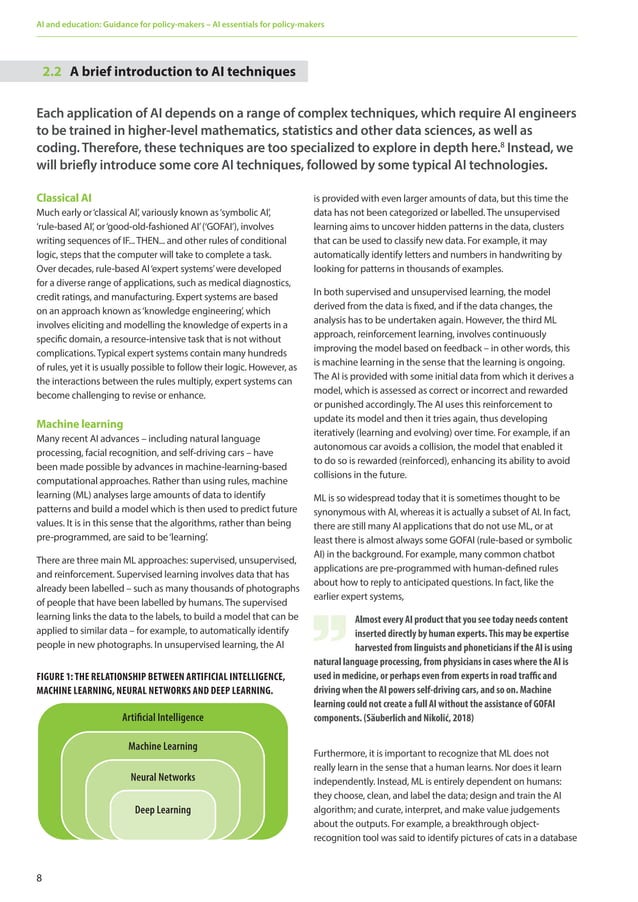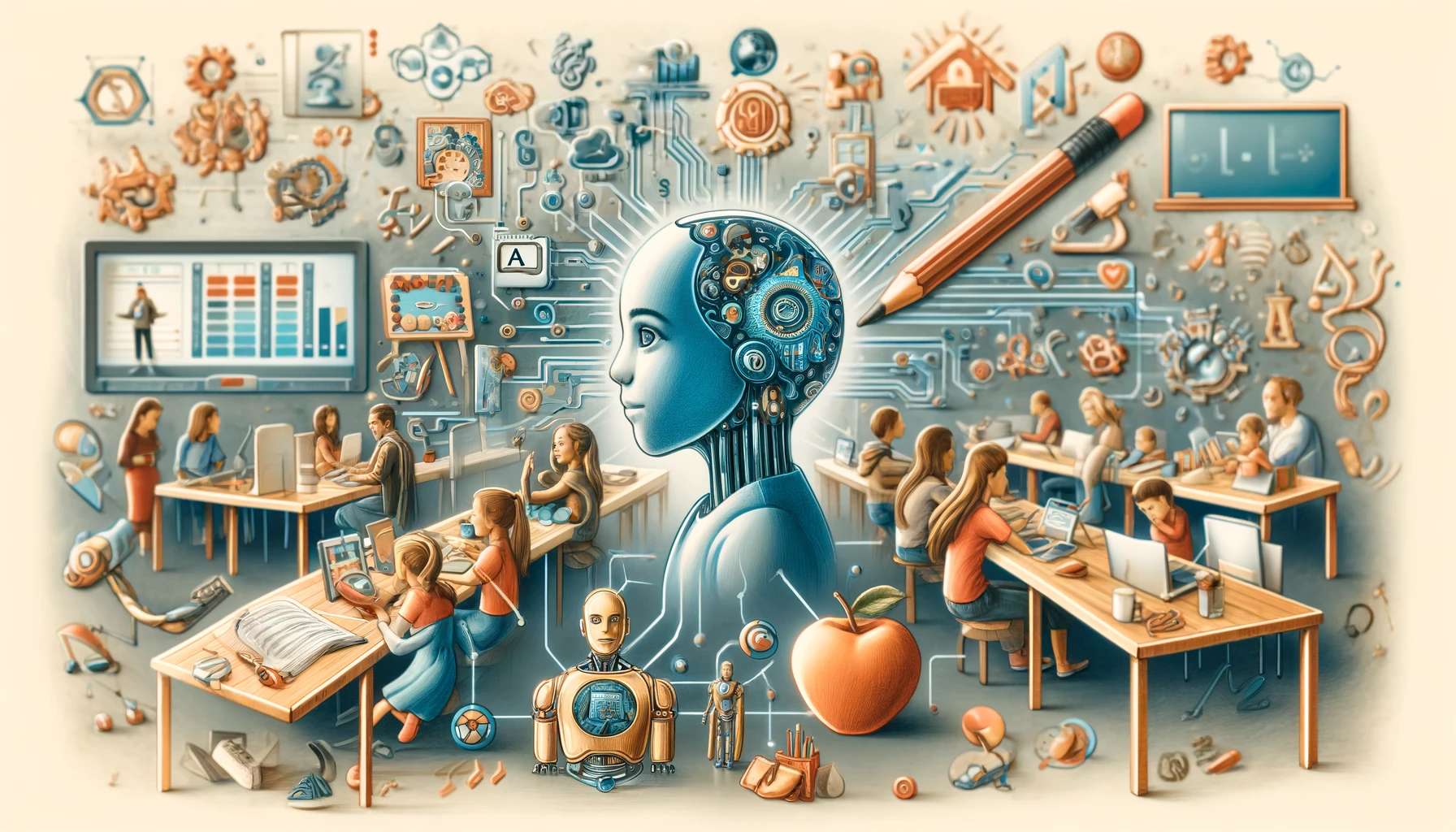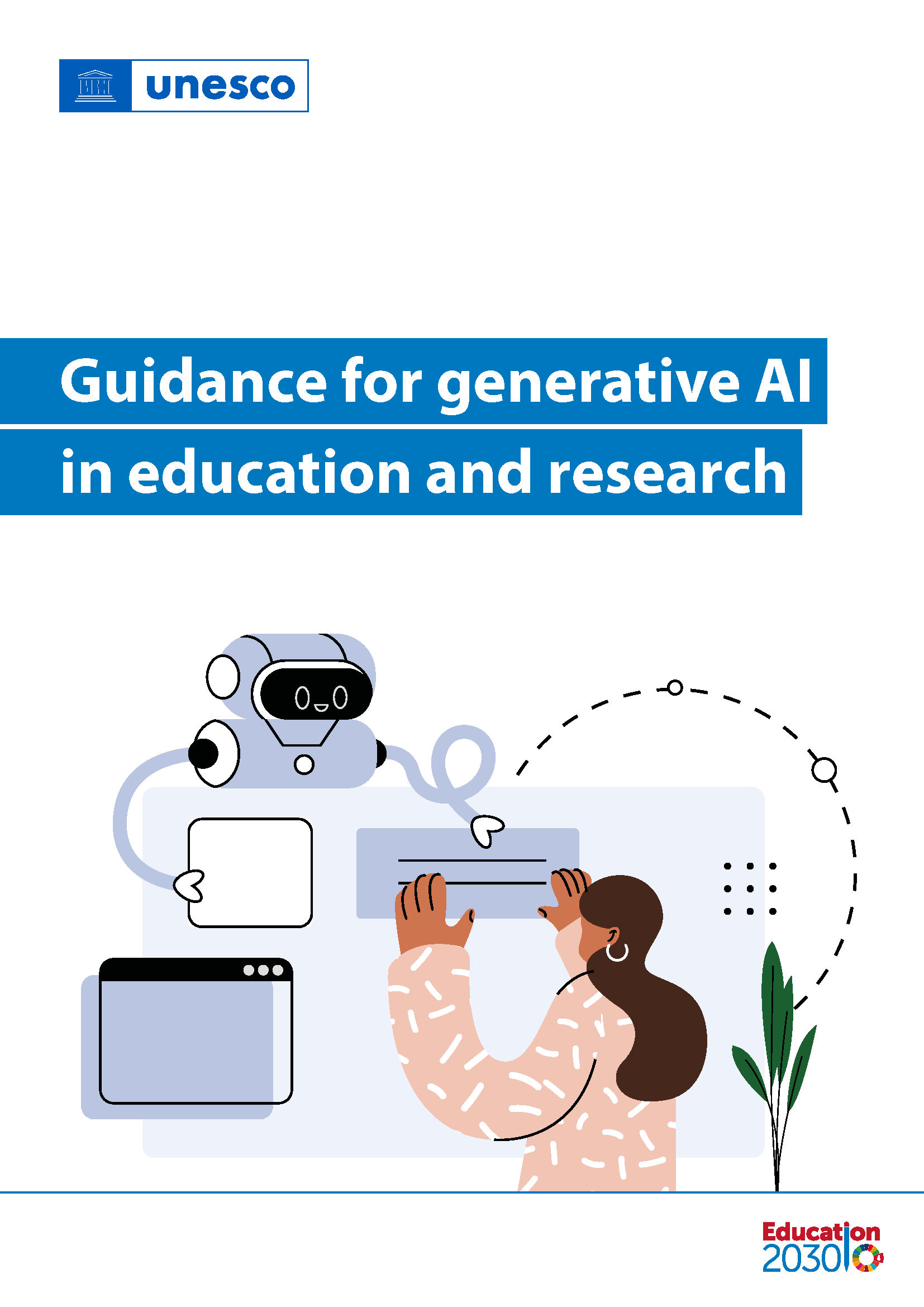Ai And Education A Guidance For Policymakers

The hum of innovation surrounds education, but it's no longer the chalk scratching against the board or the rustle of textbooks. Artificial intelligence (AI) is rapidly transforming the landscape, promising personalized learning, automated administrative tasks, and unprecedented access to information. However, this potential comes with a complex web of ethical, practical, and societal implications that demand careful consideration from policymakers.
Policymakers worldwide face the critical task of navigating the integration of AI in education. They must develop frameworks that maximize its benefits while mitigating potential risks such as algorithmic bias, data privacy concerns, and the exacerbation of existing inequalities. This article delves into the key considerations for policymakers as they chart a course towards an AI-powered future for education, drawing on insights from experts, research, and international best practices.
Understanding the Scope of AI in Education
AI applications in education are multifaceted. They range from intelligent tutoring systems that adapt to individual student needs to automated grading tools that free up teachers' time.
Personalized learning platforms powered by AI can analyze student performance data to tailor curriculum and provide targeted interventions. These systems promise to address learning gaps and accelerate student progress.
Beyond the classroom, AI can streamline administrative tasks such as scheduling, resource allocation, and student support services. This allows educators to focus on their core responsibility: teaching and nurturing students.
The Promise and Peril: Key Considerations for Policymakers
Addressing Algorithmic Bias
One of the most pressing concerns is the potential for algorithmic bias. AI systems are trained on data, and if that data reflects existing societal biases, the AI will perpetuate and even amplify them.
For example, an AI-powered admissions system trained on historical data that favors certain demographics could unfairly disadvantage applicants from underrepresented groups. Policymakers must ensure that AI systems used in education are rigorously tested for bias and that developers are held accountable for mitigating it.
Independent audits, diverse development teams, and transparent data practices are crucial to fostering fairness and equity.
Protecting Student Data Privacy
The use of AI in education inevitably involves the collection and analysis of vast amounts of student data. This data can include academic performance, learning preferences, and even biometric information.
Policymakers must establish clear and robust data privacy regulations that protect student information from misuse and unauthorized access. The General Data Protection Regulation (GDPR) in Europe provides a useful model for comprehensive data protection.
It requires explicit consent for data collection, transparency about data usage, and the right for individuals to access and correct their data. Similar frameworks should be adopted and adapted to the specific context of education.
Bridging the Digital Divide
The benefits of AI in education cannot be realized if access to technology is not equitable. The digital divide, characterized by disparities in access to internet and devices, remains a significant barrier.
Policymakers must invest in infrastructure and programs that ensure all students, regardless of their socioeconomic background or geographic location, have access to the tools they need to participate in an AI-powered learning environment. This includes providing affordable internet access, laptops or tablets, and digital literacy training for both students and teachers.
Failure to address the digital divide will only exacerbate existing inequalities and create a two-tiered education system.
Empowering Teachers and Educators
AI should not be seen as a replacement for teachers, but rather as a tool to augment their capabilities. Teacher training is essential to ensure educators are equipped to effectively use AI-powered tools and integrate them into their teaching practices.
Training programs should focus on developing teachers' understanding of AI concepts, their ability to critically evaluate AI-powered resources, and their skills in using AI to personalize learning and provide targeted support to students. Moreover, it is important to reassure teachers that AI will not replace them.
Their roles will evolve, shifting from traditional lecturing to facilitating personalized learning experiences and providing individualized support.
Fostering Collaboration and Innovation
The successful integration of AI in education requires collaboration between policymakers, educators, researchers, and technology developers. Public-private partnerships can play a crucial role in fostering innovation and developing AI solutions that are tailored to the specific needs of the education system.
Policymakers should create an environment that encourages experimentation and innovation while also ensuring that ethical considerations are at the forefront of development. This includes providing funding for research and development, establishing regulatory sandboxes for testing new AI applications, and creating platforms for sharing best practices and lessons learned.
Open-source initiatives and data sharing agreements can accelerate the development and adoption of effective AI solutions.
International Perspectives and Best Practices
Several countries are already experimenting with AI in education, offering valuable lessons for policymakers. Finland, for example, has invested heavily in digital infrastructure and teacher training, creating a supportive ecosystem for the adoption of AI in schools. The United Kingdom has established the Centre for Data Ethics and Innovation to provide guidance on the ethical use of AI in various sectors, including education.
China has been rapidly deploying AI-powered learning platforms and tutoring systems, raising concerns about data privacy and surveillance. By studying these different approaches, policymakers can learn from both the successes and the failures of others and develop strategies that are best suited to their own contexts.
UNESCO has also published guidelines on the ethical use of AI in education, emphasizing the importance of human rights, inclusion, and sustainability.
Looking Ahead: Shaping the Future of Education with AI
AI has the potential to revolutionize education, but its transformative power must be harnessed responsibly. Policymakers have a crucial role to play in shaping the future of education by developing frameworks that promote equity, protect student data, and empower teachers. The conversation around AI in education needs to be multi-faceted, encompassing pedagogy, ethics, data privacy, and access.
By embracing a collaborative and forward-thinking approach, policymakers can ensure that AI serves as a force for good, creating a more equitable and effective education system for all. The future of learning is here, and it is powered by AI. It is now up to policymakers to guide its trajectory.
Ultimately, the goal is not just to integrate AI into education, but to create a learning environment where AI enhances the human experience and empowers students to reach their full potential.
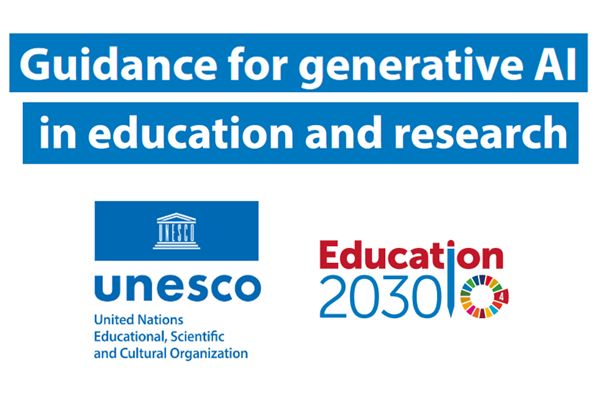



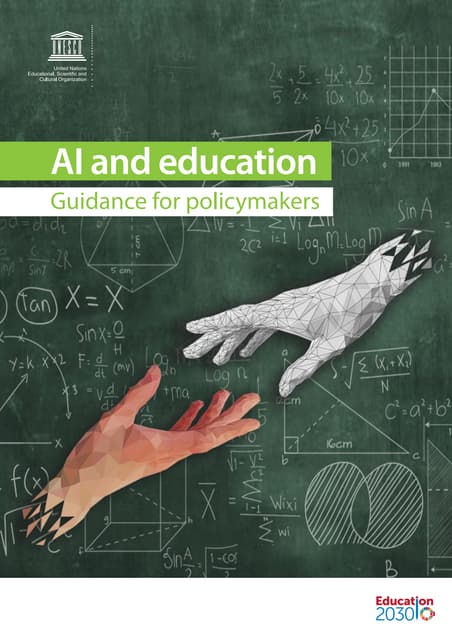


)+(6).png)
